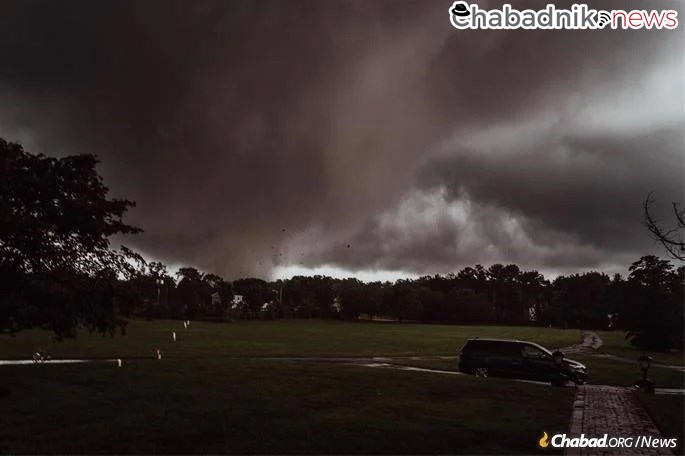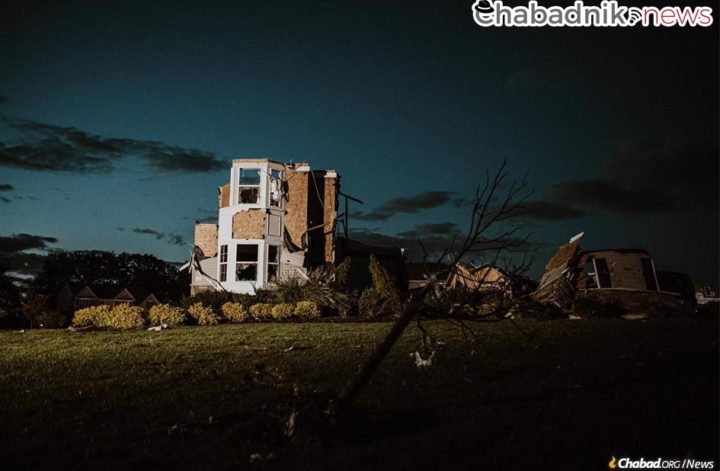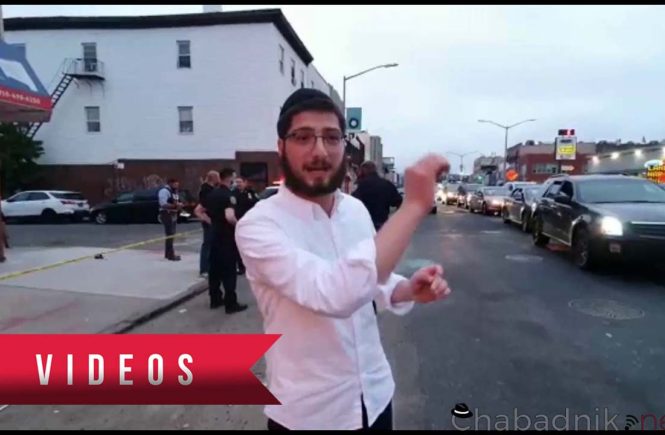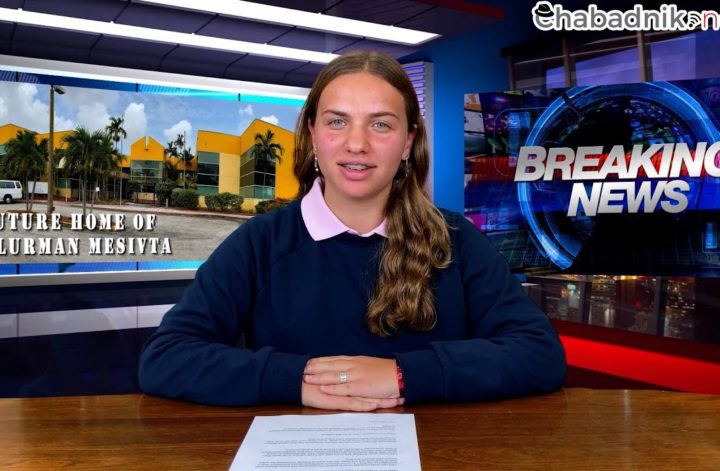Mourning over destroyed and lost possessions coupled with gratitude for lives spared
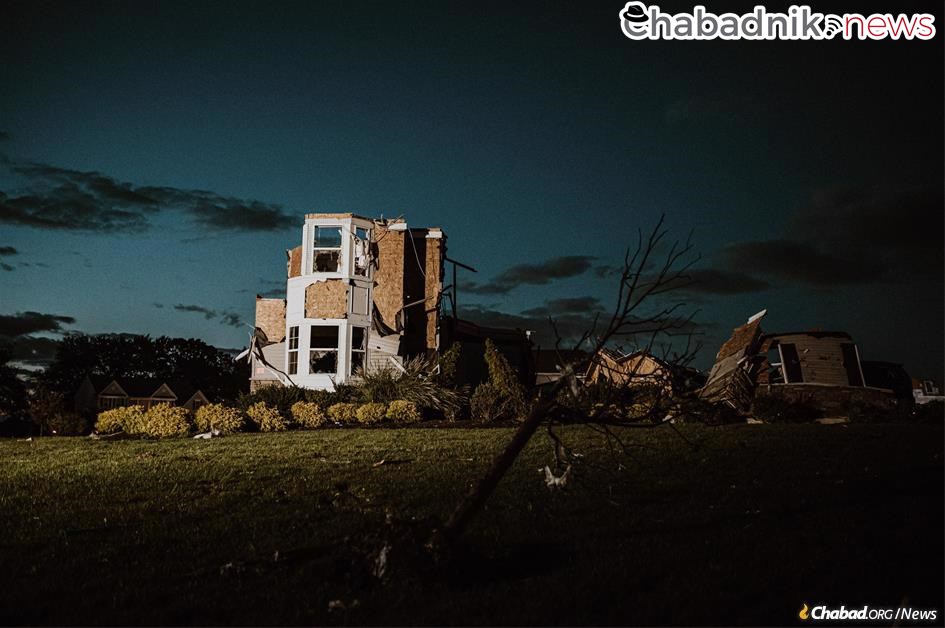
The Richler children of Mullica Hill, N.J., were celebrating back to school with a dance party in their living room when one of the oldest looked out the window and said, “There’s a tornado outside.”
“It came within 500 feet of our house,” says their father, Rabbi Avrohom (“Avi”) Richler, who along with his wife, Mina, co-direct Chabad of Gloucester County in Mullica Hill, N.J. While their house was spared, neighbors in this small Gloucester County town were not as lucky, with home after home facing damage and destruction from the EF3 tornado.
The tornado was part of the remnants of Hurricane Ida that tore through New York, New Jersey and parts of Pennsylvania late Wednesday afternoon and evening. It dropped record rainfall—more than eight inches in less than 24 hours—stranding people in their cars and flooding roads and buildings, leaving some areas uninhabitable.
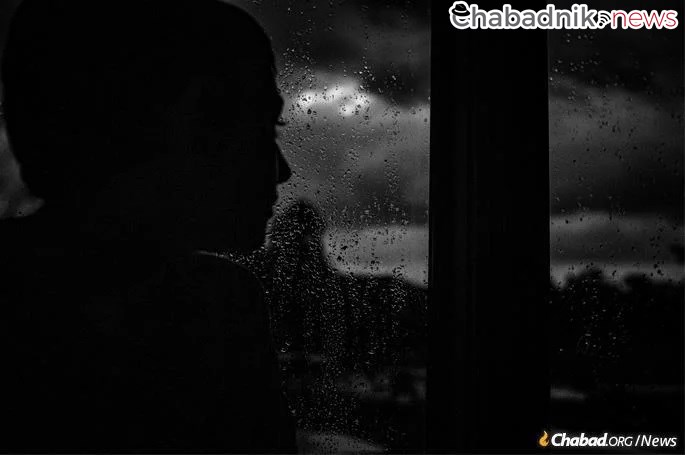
More than 40 people lost their lives in the storm, including Rabbi Shmuel Dovid Weissmandl, a prominent rabbinic leader in Mount Kisco, N.Y. Hundreds of others have been displaced.
In Mullica Hill, a town of about 3,600 people, the Richlers are determined to help their community get back on its feet.
“The tornado came as a complete shock,” says Mina Richler. “In a small town, when something happens, everyone is united. It is the core of humanity; here, all differences fade away. We are all one people, united, working together to help pick up the pieces.”
“Thank G‑d, no one was hurt here, and that’s the main thing,” adds Avi Richler. “Now, there are the immediate needs, but the long-term needs will emerge over the coming days.”
To that end, the couple reached out to families it knows—and by extension, those it is meeting for the first time—to see how they can help, whether with tangible goods, providing a hot meal or offering a listening ear.
“Just by looking someone in the eye and being in a place of understanding and compassion, or giving them a hug, dropping off a meal, or calling and checking to see how they are holding up” can make a difference, insists Mina Richler, who has been speaking with affected families.
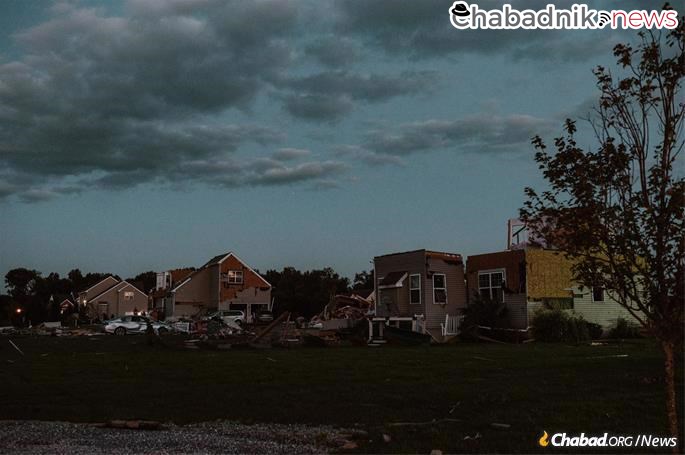
She makes it a point to remind people that “it’s OK to feel grief over their lost possessions, even though they are just possessions, and that we will help them in any which way we can.”
‘A Feeling of Wholeness When Everyone Is Safe’
They are also assisting families to create registries on Amazon.com, where they can itemize goods they need. Among those working on a list is a bat mitzvah-age girl who lost all her things when her bedroom was destroyed in the storm.
As Richler explains, “If people are starting from scratch, they should start with things that are beautiful, that are their style and that will make them feel more whole as a person—whether they are a teen starting high school, a first-grader or a family.”
Part of helping their community heal emotionally also means realizing the toll that the storm and the aftermath are taking on themselves as well.
“After the tornado went through town, I posted online that we were OK, but I realized that we are not,” says Richler. “We are seeing so many people going through shock and trauma, and seeing people who were trapped. I think that as a community, there’s a feeling of wholeness when everyone is safe.”
She continues, saying “we are here as emissaries of the Rebbe for the entire community. Only once every person in our community is OK will we be OK.”
Adds her husband: “We are here for the long term to make sure everyone is whole.”
